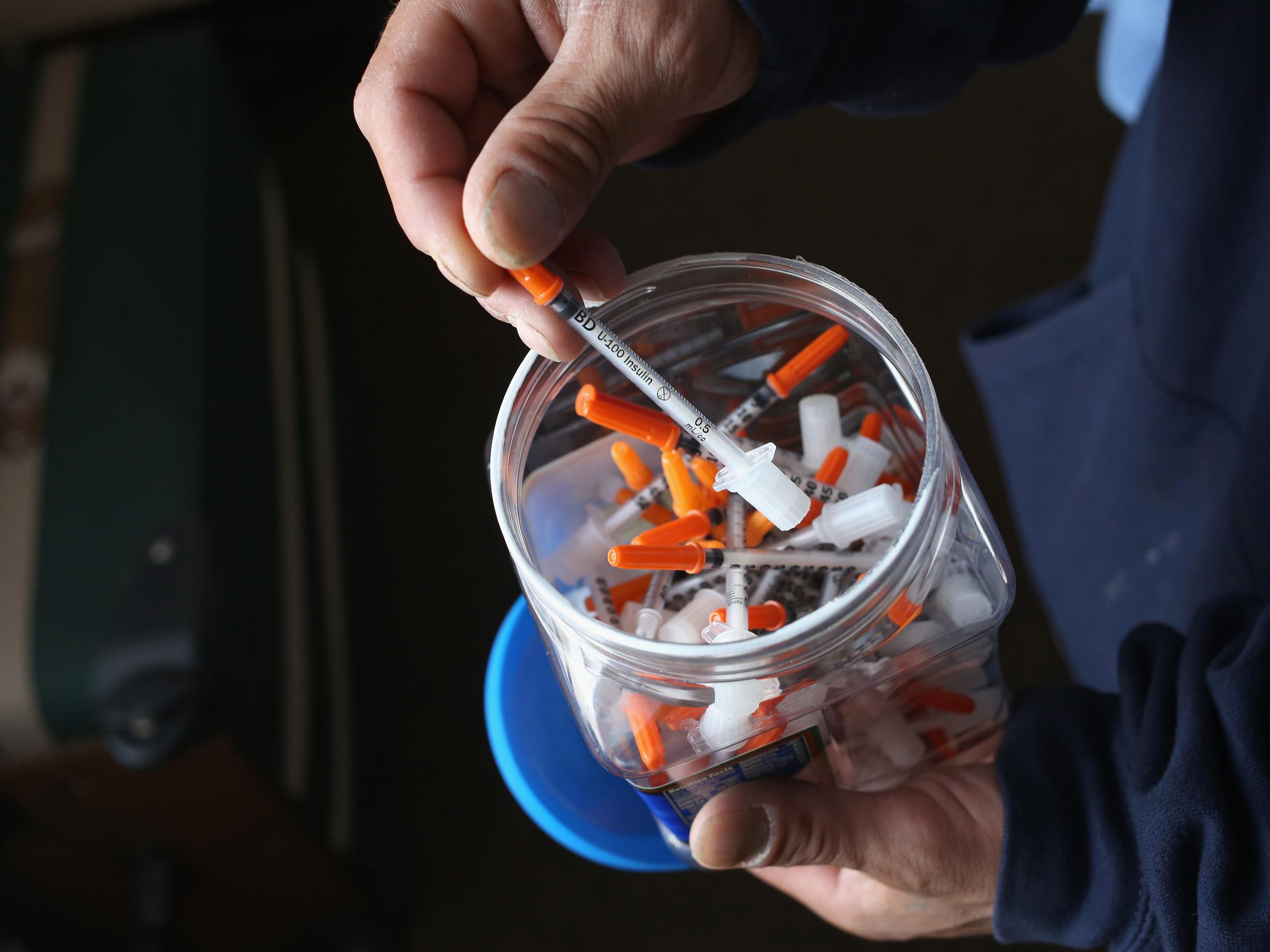Home Secretary urged to open ‘fix rooms’ to cut drug-related deaths
Proposals are in place to create a medically-supervised injecting facility in Glasgow - the first of its kind in the UK

Your support helps us to tell the story
From reproductive rights to climate change to Big Tech, The Independent is on the ground when the story is developing. Whether it's investigating the financials of Elon Musk's pro-Trump PAC or producing our latest documentary, 'The A Word', which shines a light on the American women fighting for reproductive rights, we know how important it is to parse out the facts from the messaging.
At such a critical moment in US history, we need reporters on the ground. Your donation allows us to keep sending journalists to speak to both sides of the story.
The Independent is trusted by Americans across the entire political spectrum. And unlike many other quality news outlets, we choose not to lock Americans out of our reporting and analysis with paywalls. We believe quality journalism should be available to everyone, paid for by those who can afford it.
Your support makes all the difference.Home Secretary Amber Rudd has been urged by Government advisers to consider creating units where addicts can take drugs under supervision.
Experts called on ministers to examine the potential to reduce drug-related deaths by providing medically-supervised drug consumption clinics — or so-called "fix rooms".
The centres are facilities where people can go to use illicit substances that they have purchased elsewhere in a "hygienic and medically supervised setting", according to a report from the Advisory Council on the Misuse of Drugs.
Proposals are in place to create a medically-supervised injecting facility in Glasgow - the first of its kind in the UK.
Similar schemes are in place overseas in countries including Germany and the Netherlands.
The option was discussed in a paper from the ACMD on the causes of an increase in drug misuse deaths involving opioids, which include heroin, and potential responses.
It recommended that "consideration be given - by the governments of each UK country and by local commissioners of drug treatment services - to the potential to reduce DRDs (drug-related deaths) and other harms through the provision of medically supervised drug consumption clinics in localities with a high concentration of injecting drug use".
The report said research on the effects of medically supervised drug consumption clinics has shown that they reduce "injecting risk behaviours" and overdose fatalities.
Such facilities have not been found to increase injecting, drug use or local crime rates, the study added.
Over the last four years the number of reported drug misuse deaths involving opioids jumped by 58 per cent in England, 23 per cent in Wales and 21 per cent in Scotland.
Annette Dale-Perera, co-chair of the ACMD's drug-related deaths working group, said: "We can assert with a good degree of confidence that the ageing profile of heroin users with increasingly complex health needs, social care needs and continuing multiple risk behaviours has contributed to recent increases in drug-related deaths.
"The greater availability of heroin at street level, the deepening of socio-economic deprivation since the financial crisis of 2008, changes to drug treatment and commissioning practices, and the lack of access to mainstream mental and physical health services for this ageing cohort have also potentially had an impact."
The panel raised concerns that drug treatment and prevention services in England are planned to be among those public health services that receive the most substantial funding cuts as a consequence of the Government's decision to cut the public health grant.
Alex Stevens, co-chair of the working group, said: "We welcome the Government's commitment to reducing preventable heroin-related deaths but they must ensure the current standard and availability of drug treatment is at least maintained.
"Without continued Government intervention, it is likely that opioid-related deaths will continue to rise."
Press Association
Subscribe to Independent Premium to bookmark this article
Want to bookmark your favourite articles and stories to read or reference later? Start your Independent Premium subscription today.
Join our commenting forum
Join thought-provoking conversations, follow other Independent readers and see their replies
Comments